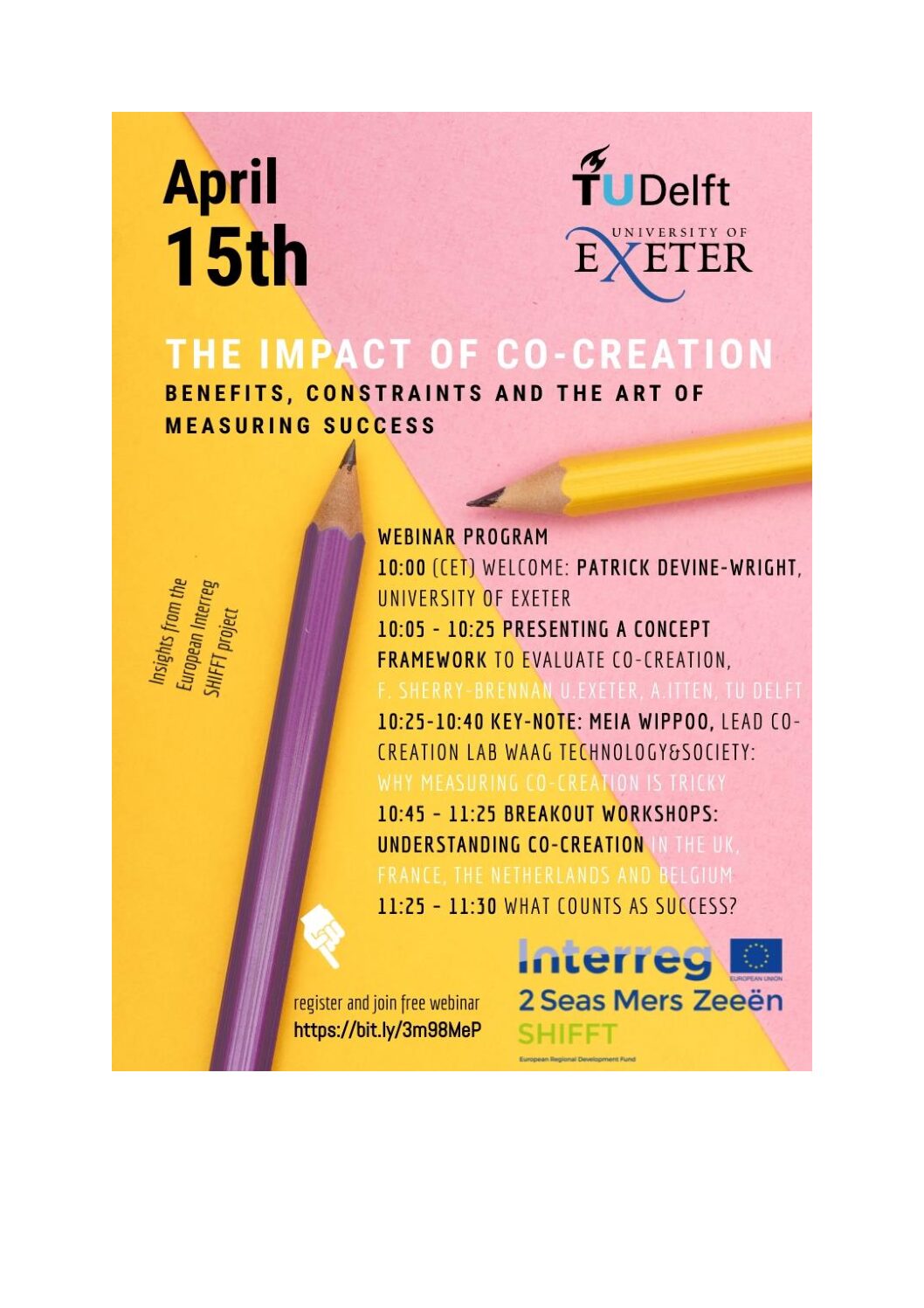The Impact of Co-creation: Benefits, Constraints and the Art of Measuring Success
There is much potential for co-creation approaches with active residents and energy communities to move away from coal, gas and oil. But what counts as success? Because co-creation is a non-linear method, establishing monitoring and evaluation is essential. Patrick Devine-Wright from the University of Exeter will introduce this webinar and highlight why the impact of co-creation is so crucial.
Drawing from insights of the European SHIFFT project on sustainable heating, Fionnguala Sherry-Brennan from the University of Exeter and Anatol Itten from Delft University of Technology will then present a concept framework to evaluate co-creation. Analysing features of co-creation (what happened when, who was involved, challenges experienced) can provide feedback what changes may be needed, and reveal why outcomes were or were not achieved.
Meia Wippoo, from Waag Society and Technology will respond why measuring co-creation is tricky, and how pitfalls can be avoided. The workshop then dives into evaluating European co-creation pilots more practically, from examples in Norwich, Bruges, Mechelen, Fourmies, Hauts-de-France and Middleburg and seeks to uncover how understandings of co-creation vary amongst different territories, cultures and cities.
Please register for this free webinar here:
Can you please also invite your network and share the event in your circles? Here is the LinkedIn event:
https://www.linkedin.com/events/theimpactofco-creation-benefits6783031863435964417/


